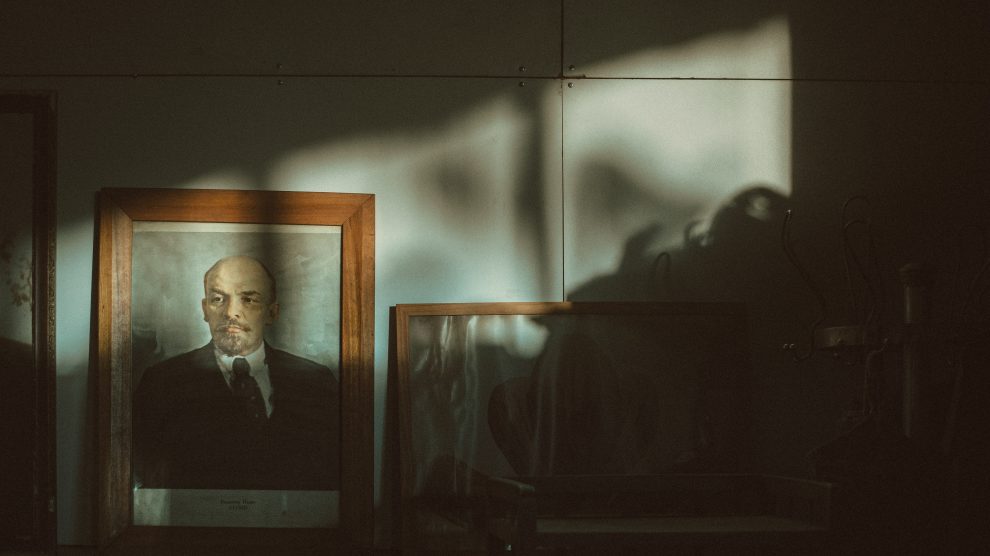Georgia may have decades ago broken free from the Soviet Union, but its struggle for true independence is far from over.
For the 15 nations once trapped behind the Iron Curtain, the Soviet Union represented not just stagnation but an imposed paralysis—a system designed to suppress ambition, erase national identity, and instill obedience. It was an empire built on illusion, convincing its subjects that the Soviet project was eternal, that beyond its borders lay only chaos, inequality, and moral decay.
I was born in 2000, spared from experiencing Soviet rule firsthand. Yet, as I observe my country today, I cannot help but feel that Georgia remains ensnared in a different kind of pause—not one dictated by Soviet tanks, but by a government reluctant to break free from Moscow’s shadow.
I reject the legacy of the Soviet Union, not merely because of its oppressive nature, but because it sought to suppress the very essence of what makes a nation thrive—individuality, self-determination, and progress.
At a glance, socialism may appear noble, promoting social equality and collective governance. In reality, however, it was a rigid, artificial system that enforced uniformity and erased distinction. The promise of classlessness was hollow; while the majority endured hardship, a privileged elite lived in comfort.
Freedom fraught with hardship
Soviet rule was more than economic repression—it was an attack on national identity. It sought to homogenise cultures, erasing the traditions, languages, and histories that distinguished each republic. Georgia was expected to relinquish its unique heritage in favour of a collective Soviet identity, where loyalty to Moscow superseded all else.
The Soviet Union collapsed, as all artificial constructs eventually do. For many, its dissolution was inevitable. Yet for Georgia, independence came at an immense cost. The 1990s—heralded as an era of prosperity in the West—were a time of suffering for us. We gained our sovereignty, but at the price of economic ruin, lawlessness, and instability. Our newly reclaimed freedom was fraught with hardship, and the transition to democracy was anything but seamless.
Tbilisi’s Lenin Square was renamed Freedom Square, but the journey from Lenin to true freedom has been full of obstacles. We fought for our independence with roses in our hands, believing that democracy and peace would follow.
And yet, more than three decades later, the struggle persists. Russia no longer needs tanks to exert control; it employs more insidious methods—creeping occupation, hybrid warfare, and political influence. Today, the government in Tbilisi appears more concerned with maintaining power than upholding the democratic aspirations of its people.
When Georgians resist—when we take to the streets to defend our democracy—we are met not with dialogue but with repression. I will never forget March 2023, when thousands of us stood before parliament, demanding the withdrawal of the so-called ‘foreign agent’ law—a Russian-inspired piece of legislation meant to silence civil society and free media. We protested, and we won.
The government withdrew the law, and for a brief moment, we believed that our voices had power. Little did we know that this small victory would only foreshadow a far greater battle.
One year later, in 2024, the government resurrected the law, this time with renewed force, defying the will of its people. The protests escalated, and so did the repression. Once again, tear gas and rubber bullets were deployed against peaceful demonstrators. Once again, the people of Georgia were reminded that our struggle for freedom is far from over.
The fight for true freedom continues
The 2020 elections had already shown us that our democracy was under threat—our voices were silenced, our votes disregarded. Now, with the government openly defying democratic principles and aligning itself with Russia, the fight has become even more urgent.
Yet, despite all this, I refuse to believe that Georgia is destined to remain in this state of suspended progress. The future does not belong to those who cling to a past of oppression and submission. It belongs to those who strive for a free, democratic, and European Georgia. The Soviet Union may have sought to erase our identity, but it failed. And it will fail again.
I am Georgian, therefore I am European. These words, spoken by Zurab Zhvania at the Council of Europe, gave us a new identity and a vision for the future. A future where Georgia is part of the European family, where democracy prevails, and where no force—foreign or domestic—can keep us in a state of endless pause.
The pause must end. The fight for true freedom continues.
Photo by Egor Myznik on Unsplash.
At Emerging Europe, we use an integrated approach centred around market intelligence to help organisations understand trends and strategically position themselves for success.
Learn how our solutions can help you thrive in the region:
Company and Services Overview | Strategic Advantage.

